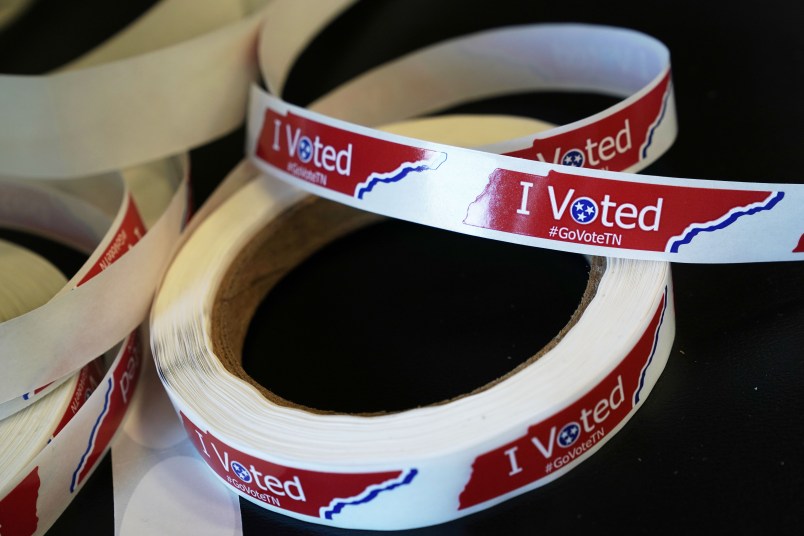The GOP-controlled state House in Tennessee passed legislation Monday making voter registration drives more onerous. The bill imposes fines on registration groups that turn in too many incomplete registration forms, while also allowing criminal penalties, including jail time, if the groups violate certain rules regarding voter registration.
Republicans, including Secretary of State Tre Hargett, pushed the bill after local election officials in Tennessee’s Shelby County were sued in 2018 by a black voter group for their handling of voter registration forms.
Under the new proposal, voter registration groups that turn in more than 100 “deficient” registration forms can be fined up to $2,000, and those that turn in more than 500 deficient applications would face fines up to $10,000. The groups also must be registered in state, are required to submit the registration forms within 10 days of collecting them, and are banned from paying workers per registration completed, under the legislation.
Violating those rules could land a paid worker of a voter registration drive in prison for nearly a year and also impose a $2,500 fine. The penalties apply only to groups that pay workers for the collection of registrations.
Voting rights group say that the legislation is geared at chilling voter participation efforts in a state that has one of the lowest registration rates in the country. Its supporters say it will prevent counties from having to spend thousands on correcting the deficient forms.
In the 2018 litigation, the Tennessee Black Voter Project alleged that the officials in Shelby County, which contains Memphis, had failed to process thousand of applications the group had submitted. The county election commission claimed that the registration group had bombarded officials at the last minute with nearly 10,000 applications — some 55 percent of them either missing information, coming from felons, or being duplicates. The group countered that the applications were being deemed incomplete for minor deficiencies, like a failure to check the “Mr./Mrs./Ms” box.
A state court judge ruled that the election officials had to let those with incomplete applications vote with regular ballots on Election Day once they corrected the deficiencies at their polling place. That order, however, was mostly blocked by an appeals court in the state.
The new legislation now heads for a vote in the Senate, where it has already been approved by a committee.






